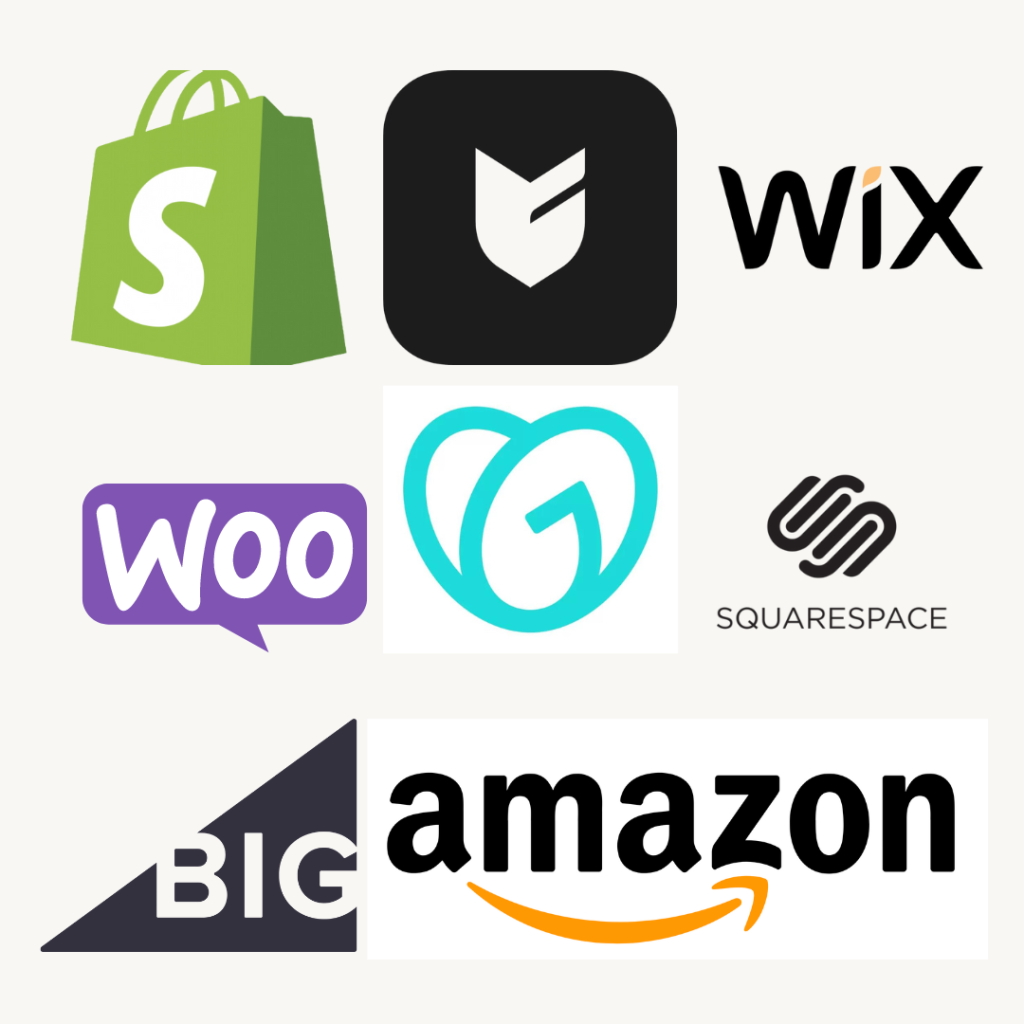Choosing the right e-commerce platform is crucial for your online store’s success in 2024. With so many options available, it can be overwhelming to decide which one is best for your business. This guide breaks down the top e-commerce platforms, highlighting their features, pros, and cons, to help you make an informed decision.
1. Shopify
Features:
Shopify is a leading platform in the e-commerce world, hosting over 1.75 million active stores. It’s designed specifically for online selling, offering 24/7 support and a vast library of themes and apps. Setting up your store is quick, with the process taking just four minutes.
Pros:
Shopify’s extensive features and user-friendly interface make it a top choice for serious e-commerce sellers. It includes a free SSL certificate and offers a 14-day trial, making it easy to get started. The platform’s app store covers almost every need, reducing the reliance on developers.
Cons:
However, Shopify can be expensive, starting at $29/month, with additional costs for apps and integrations. Customization options for product and checkout pages are limited, and while 24/7 support is available, its quality has declined.
2. Squarespace
Features:
Squarespace is renowned for its beautiful website design templates and 24/7 customer support. It’s priced affordably at $16/month, making it accessible to a wide range of users.
Pros:
The platform excels in aesthetics, making it ideal for artists and creators focused on showcasing their work. Its ease of use and straightforward setup process are significant advantages.
Cons:
Squarespace wasn’t originally designed for e-commerce, resulting in fewer apps and features. For those needing a robust e-commerce solution, Squarespace may fall short.
3. Wix
Features:
Wix is known for its easy-to-use website builder, a large app marketplace, and strong SEO capabilities. It offers a simple setup process and solid security features.
Pros:
Wix’s versatility makes it suitable for various websites, offering decent search functions and an easy-to-navigate platform.
Cons:
Since Wix started as a website builder, its e-commerce functionality is secondary. This results in limited support and fewer features for serious online stores. Wix is best for those who need a versatile website with some e-commerce capabilities.
4. GoDaddy
Features:
GoDaddy is best known for its domain services but offers limited e-commerce solutions. While it provides affordable domain pricing, its e-commerce features are not as robust.
Pros:
GoDaddy’s affordable domain services make it a good choice for buying and managing domain names.
Cons:
However, its e-commerce offerings are overpriced and lack essential features and functionalities compared to other platforms, making it less suitable for building a full-fledged online store.
5. Big Cartel
Features:
Big Cartel is designed for artists and small creators, offering a free plan for up to five products. It’s simple and easy to use, providing a straightforward platform for selling art and crafts.
Pros:
Big Cartel is ideal for artists looking to sell a few products without upfront costs. It’s a great starting point for small-scale stores.
Cons:
As businesses grow, Big Cartel’s capabilities become insufficient. It has limited features and integrations, and scaling up can be challenging. It also lacks 24/7 chat or phone support.
6. BigCommerce
Features:
BigCommerce caters to medium and large businesses, providing robust features and tools for large-scale operations. It’s a strong competitor to Shopify.
Pros:
The platform offers extensive features, making it suitable for medium to large-sized businesses looking for a comprehensive e-commerce solution.
Cons:
BigCommerce’s higher cost and extensive offerings can be overwhelming for small e-commerce stores, making it less ideal for smaller businesses.
7. Magento
Features:
Magento, now known as Adobe Commerce, offers extensive customization options, making it highly flexible for creating unique e-commerce experiences.
Pros:
Its high level of customization is perfect for large businesses with the resources to manage complex setups.
Cons:
Magento is complex and requires a developer to set up and maintain. It’s not beginner-friendly and can be overwhelming for small businesses.
8. WooCommerce
Features:
WooCommerce is a free, flexible platform that runs on WordPress. It’s highly customizable and boasts a vast plugin library. While it requires self-hosting, this is more affordable than platforms like Shopify.
Pros:
WooCommerce is ideal for those looking for a budget-friendly, customizable e-commerce solution. It offers significant flexibility and a large selection of free and premium templates.
Cons:
However, it’s not as user-friendly as Shopify and may require professional help for advanced customizations. Additionally, self-hosting can bring technical challenges and minimal support.
9. Amazon
Features:
Amazon is the largest online marketplace, offering easy setup through its Fulfilled by Amazon (FBA) program. This allows sellers to leverage Amazon’s massive customer base and marketing power.
Pros:
Selling on Amazon provides access to a vast audience and Prime eligibility, boosting sales. It’s also simpler than setting up a full website.
Cons:
The high competition and fees (around 15% of sales) are notable drawbacks. Despite this, Amazon offers significant potential for quick sales.
Conclusion
Choosing the right e-commerce platform depends on your business needs and goals. If you’re looking for the easiest setup and dedicated e-commerce features, Shopify is a top choice. If you’re on a budget and want flexibility, WooCommerce offers significant customization at a lower cost. And if you prefer leveraging an existing marketplace, consider selling on Amazon. Evaluate your options carefully and select the platform that best aligns with your business objectives.



